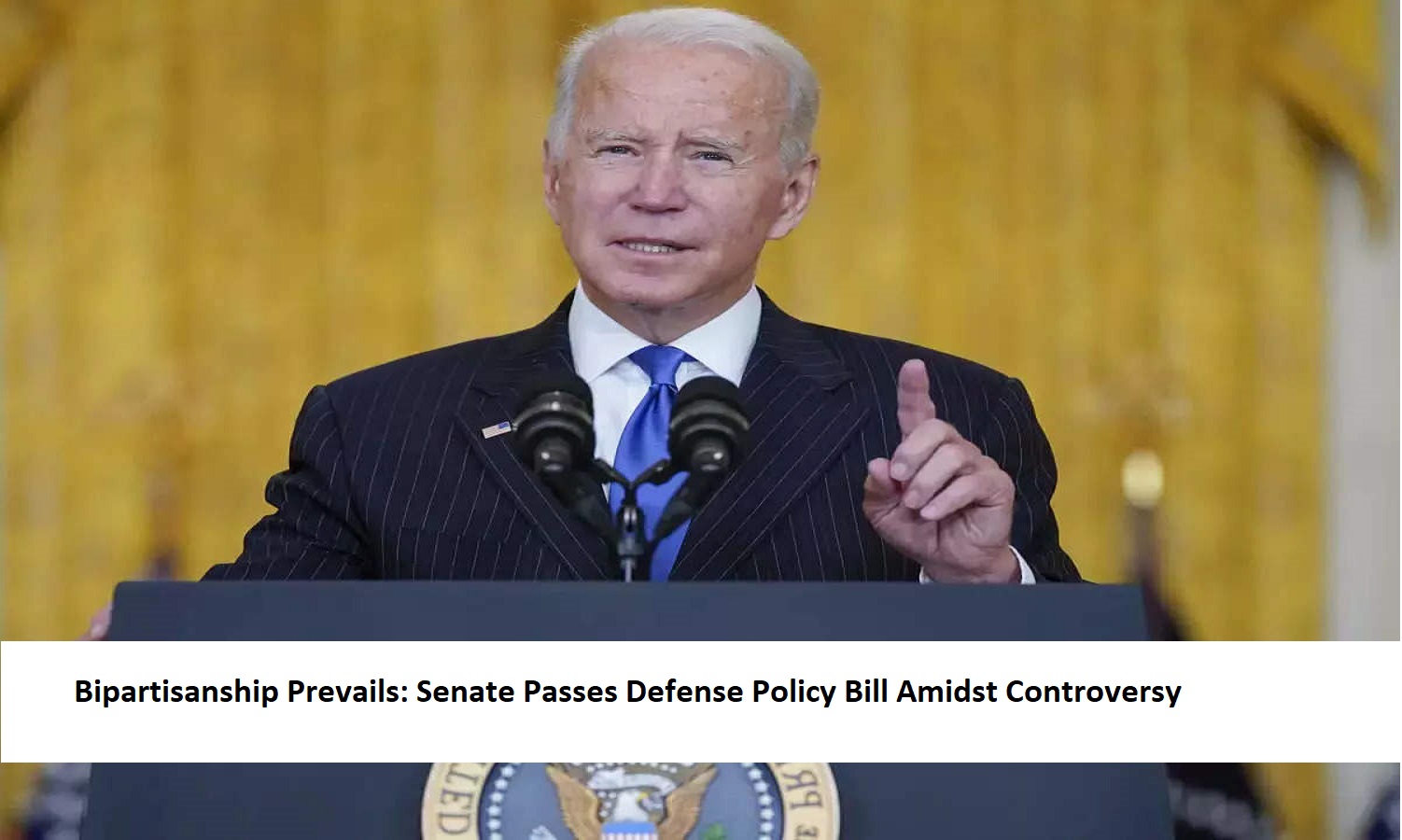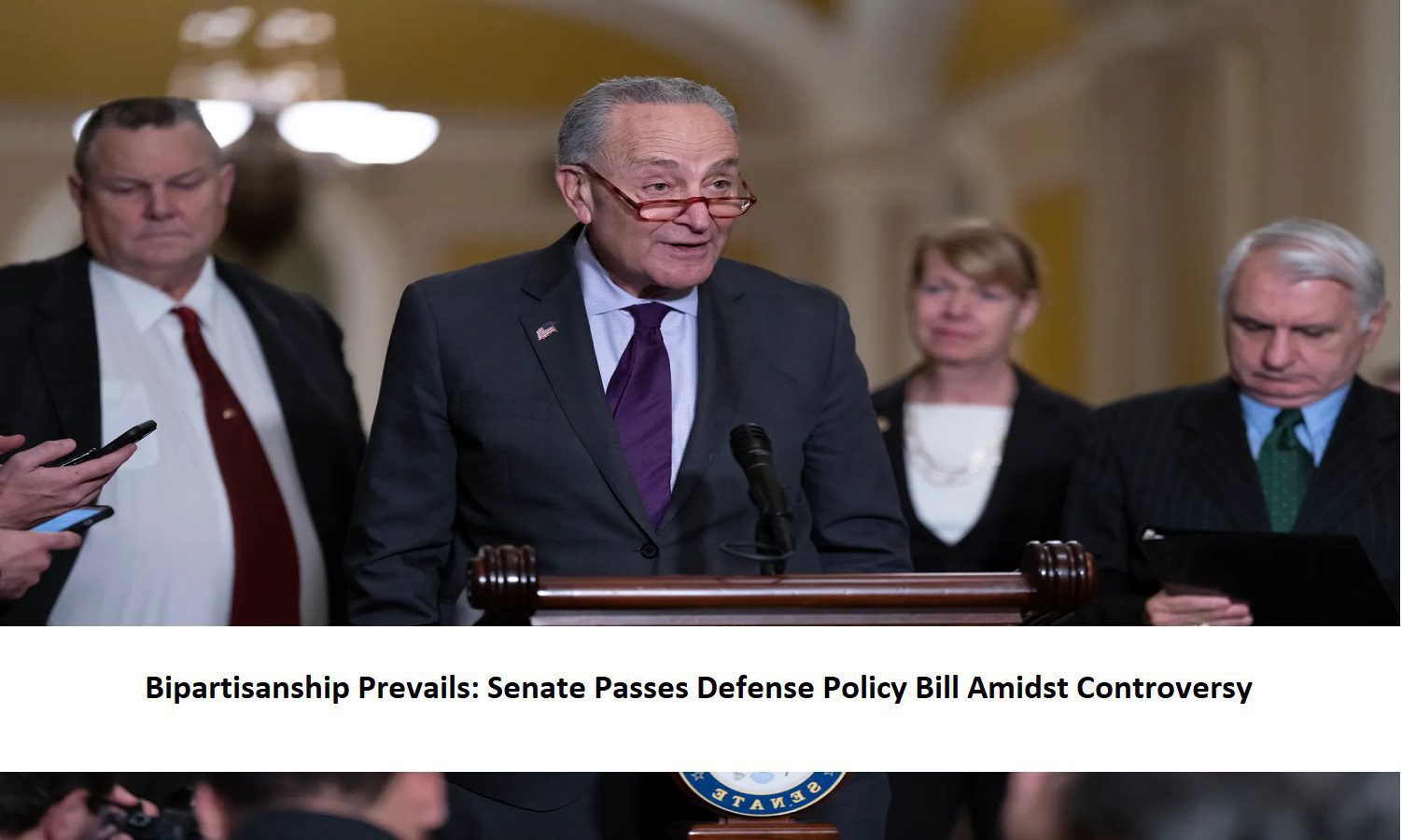Bipartisanship Prevails: The Senate passed the defense policy bill by a large vote on Thursday. Both sides worked well together. The defense budget for next year was given the green light by a vote of 86 to 11. The bill has plans to fight with China, gives the military budget and citizens a pay raise of 5.2%, and gives money for hypersonic weapons and drone technology.
As the Senate and House talk about the plan, its future is unclear. The conservative bill from the second house caused a fight.
When it came to abortion and health care for transgender service members, two controversial bills in the Senate, Republicans didn’t vote on them. This led to bills that were very different from each other, which made it hard for the House and Senate to agree for more than 60 years.
Chuck Schumer, the leader of the New York floor, said some nasty things about the House. He said that the Senate put joint legislation at the top of its list, while the House put political and useless legislation at the top of its list.
The Senate and House bills talk about abortion and transgender services in different ways. The Senate bill doesn’t talk about these things, but the House bill limits what the Pentagon can do. During talks in the House, Senate leaders, like Rhode Island Democrat Jack Reed, who is the head of the Armed Services Committee, were sure about the Pentagon’s stance on abortion access.
Democrats are against the “political” bill changes made by the House. The Senate bill wants to stop liberal practices at the Pentagon, like putting preferred pronouns on official papers. The bill puts a cap on pay and stops hiring for jobs related to equality and diversity.
The size of the bill worries Republicans in the Senate. Roger Wicker of Mississippi is the top Republican on the Armed Services Committee. He wants a budget rise above the rate of inflation to improve national defense.
During this time, the Senate and House versions were even more different because of controversial issues like US help to Ukraine and the Pentagon’s vaccine order. The Senate decided against plans to stop sending military help to Ukraine and to call back service members who hadn’t gotten their shots.


Even though there were problems, the Senate passed important bills with backing from both parties. Some things were for the US to make more low-enriched uranium and stop selling strategic fuel stocks to China, Russia, Iran, and North Korea. They also agreed that no president could leave NATO without the approval of two-thirds of the Senate or Congress.
The Senate added health care measures to the defense bill, such as money to treat more heroes of September 11 and a fireman cancer register. An addition to make up for radiation damage just barely got through.
This week, the Senate voted to stop Beijing from growing its economy and from spying on the US. Among these steps were a ban on selling farms to foreign companies and a rule that investors in China’s businesses related to national security had to tell the government about their investments. The bill discusses fentanyl trade and Pentagon’s AI use.
As talks start, nobody knows what will happen to the defense policy bill. How the bill turns out depends on how the two bodies handle defense and security.
Our Reader’s Queries
What does it mean if someone is bipartisan?
Bipartisan means both major political parties agreeing on a political decision. It aims to find common ground, but there’s a debate on whether the issues are less or more important.
What are some examples of bipartisan?
Representative John Dingell and Senator Harrison Williams, both Democratic lawmakers, crafted the endangered species bills, gaining widespread backing from their Republican counterparts. Congress approved the Endangered Species Act of 1973 with strong bipartisan support, showcasing a unified effort from both sides of the political spectrum.
Why is bipartisan important?
The Committee acknowledges that bipartisan agreement offers the crucial benefit of providing long-term budget certainty and investment security.
What do you understand by partisanship?
Partisanship in democratic politics and government refers to a fervent allegiance to a political party, as well as the ideology or agenda linked with it. This typically comes with a disapproving opinion of the opposing party.

